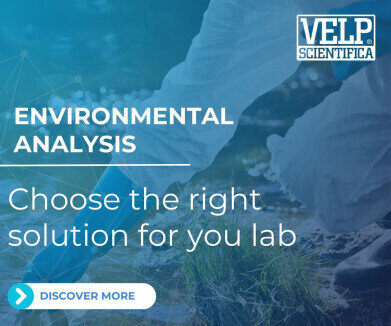Laboratory products
Enhancing Environmental Contaminant Analysis
Nov 05 2024
Environmental monitoring is crucial for safeguarding natural resources and ensuring sustainability. Advances in elemental analysis and solvent extraction technologies allow labs to quickly and accurately determine contaminants, enhancing safety and supporting remediation efforts.
Elemental analysis uses high-temperature combustion to determine key indicators of soil quality and ecosystem health, particularly carbon, hydrogen, nitrogen, and sulfur. Key applications include pollution monitoring, ecological studies, and regulatory compliance.
To meet the need for accuracy and versatility, laboratories need specialized solutions.
VELP's EMA 502 and CN 802 elemental analyzers are specifically designed for carbon, hydrogen, nitrogen, and oxygen (CHNO) analysis.
The decision to select between VELP's CN 802 and EMA 502 largely depends on your laboratory's analytical needs.
The CN 802, is a carbon and nitrogen analyzer capable of accommodating high sample weights—up to 1 g—and volumes, making it ideal for heterogeneous and low-concentration samples. With specialized features like the physical Peltier cooler trap and a halogen adsorber, the CN 802 is also particularly well-suited for long-term routine Total Organic Carbon (TOC) analysis.
Conversely, the EMA 502 micro elemental analyzer, enables simultaneous analysis of carbon, hydrogen, nitrogen, and sulfur by combustion, in samples weighing up to 100 mg. With its heightened sensitivity, flexibility, and user-friendly design, the EMA 502 is a versatile solution for laboratories requiring reliable multi-element analysis. Its capabilities greatly enhance efficiency, making either option a powerful tool for labs requiring high sample throughput and sporadic TOC analysis.
The solvent extraction technique allows environmental laboratories to efficiently isolate and concentrate target analytes, such as oils and grease from wastewater and hydrocarbons like dioxins and PCBs from soil. This process relies on the selective transfer of compounds based on solubility in a specific solvent.
For example, monitoring oil and grease concentrations in wastewater is crucial for wastewater treatment design and assessing surface water pollution. Since these compounds are often present in low concentrations, optimal recovery is essential.
The Soxhlet extraction method is widely recognized for its simplicity and reliability. However, innovations such as Randall extraction, also known as hot solvent extraction, offer enhanced efficiency. By immersing samples directly in boiling solvent, this technique improves recovery rates and minimizes the thermal degradation that can occur with Soxhlet extraction.
Automated solvent extractors further optimize this process with consistent extraction conditions, minimizing variability and ensuring safety by limiting operator exposure to hazardous solvents.
The VELP SER 158 employs the Randall extraction method to deliver precise and reproducible results up to five times faster than the traditional Soxhlet method. While Soxhlet extraction typically requires over 2.5 hours of operator time per analysis, the SER 158 requires only two minutes. Its titanium condenser and internal recovery tank reduce water consumption by more than 60% and recover over 90% of the solvent, effectively lowering operational costs and supporting laboratory sustainability.
With a comprehensive suite of advanced solutions, VELP empowers laboratories to perform environmental analysis with unmatched throughput, safety, and precision.
To explore how VELP Scientifica’s solutions can enhance your environmental analysis workflows, visit the website or contact VELP experts.
Digital Edition
Lab Asia 32.2 April
April 2025
Chromatography Articles - Effects of small deviations in flow rate on GPC/SEC results Mass Spectrometry & Spectroscopy Articles - Waiting for the present to catch up to the future: A bette...
View all digital editions
Events
Apr 22 2025 Hammamet, Tunisia
Apr 22 2025 Kintex, South Korea
Analytica Anacon India & IndiaLabExpo
Apr 23 2025 Mumbai, India
Apr 23 2025 Moscow, Russia
Apr 24 2025 Istanbul, Turkey



















